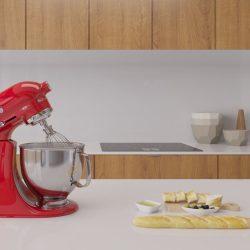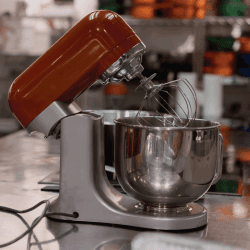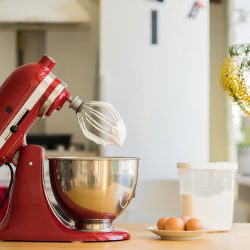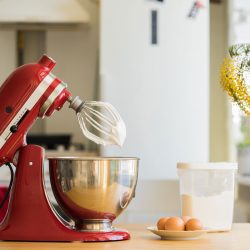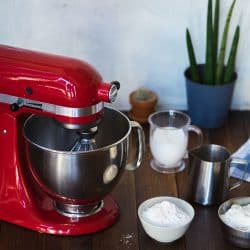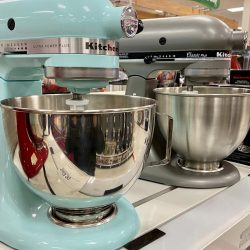Is your Kitchenaid making a clicking noise?
Don't worry, you're not alone. Many Kitchenaid owners experience this issue, and it can be caused by various factors.
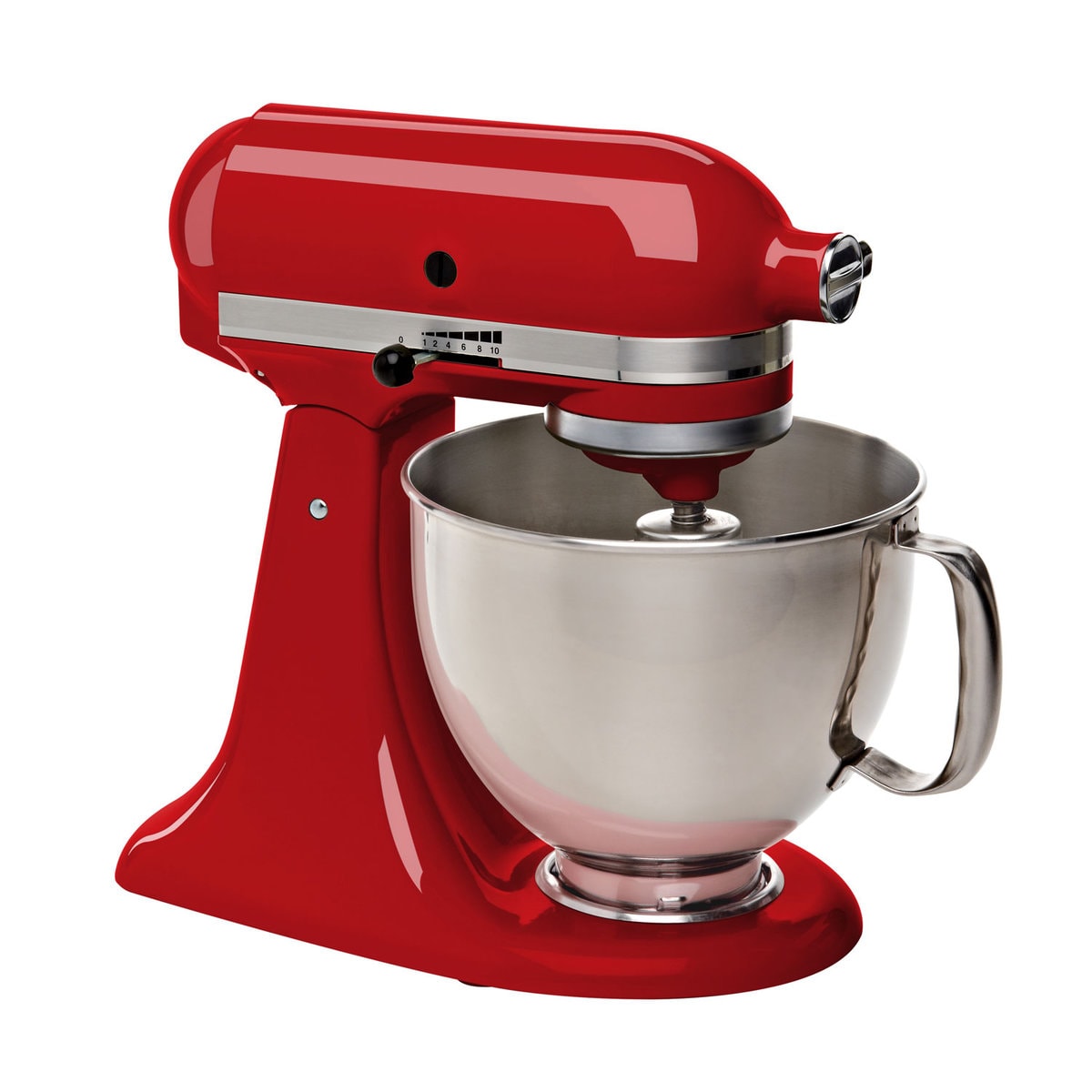
The good news is that there are solutions to this problem and get your Kitchenaid back to its quiet, efficient self.
Continue reading to find out!
Why Does My Kitchenaid Mixer Make Clicking Noises? (How To Fix)
There are a few reasons why your mixer might be making this sound, some of which are entirely normal and others that require troubleshooting.
Here are some of the most common reasons why your Kitchenaid mixer might be making clicking noises and what you can do to fix them.
Heavy Mixing
If your mixer is making clicking noises while you're using it to mix heavy ingredients, like bread dough or cookie dough, this is completely normal.
The clicking noise is just the sound of the mixer's motor working hard to mix the ingredients together.
If you're concerned about the noise, you can try reducing the speed of the mixer or breaking up the mixing into smaller batches.
Loose Blades Or Attachments
If the above scenario is not the case, try examining the blades and attachments.
If you observe that they aren't firmly attached, they might be the culprits behind the clicking.
Ensure all blades and attachments are securely affixed to the mixer before operation.
If the clicking persists, consider gently tightening the blades or attachments further.
Debris In The Motor
Another potential source of clicking noises is the presence of debris within the mixer's motor.
To fix this issue, unplug the mixer and remove any debris that you see inside the motor.
You can use a small brush or toothbrush to remove any debris that's stuck in there.
Motor Mount Screws Too Tight
Excessive tightness in the motor mount screws of your KitchenAid mixer can also lead to clicking noises.
To resolve this matter, first, unplug the mixer for safety. Then, slightly loosen the motor mount screws to mitigate the clicking noise.
Be cautious not to over-loosen them; a moderate adjustment should suffice to eliminate the issue.
Maintenance Tips For KitchenAid Appliances To Prevent Clicking Noises
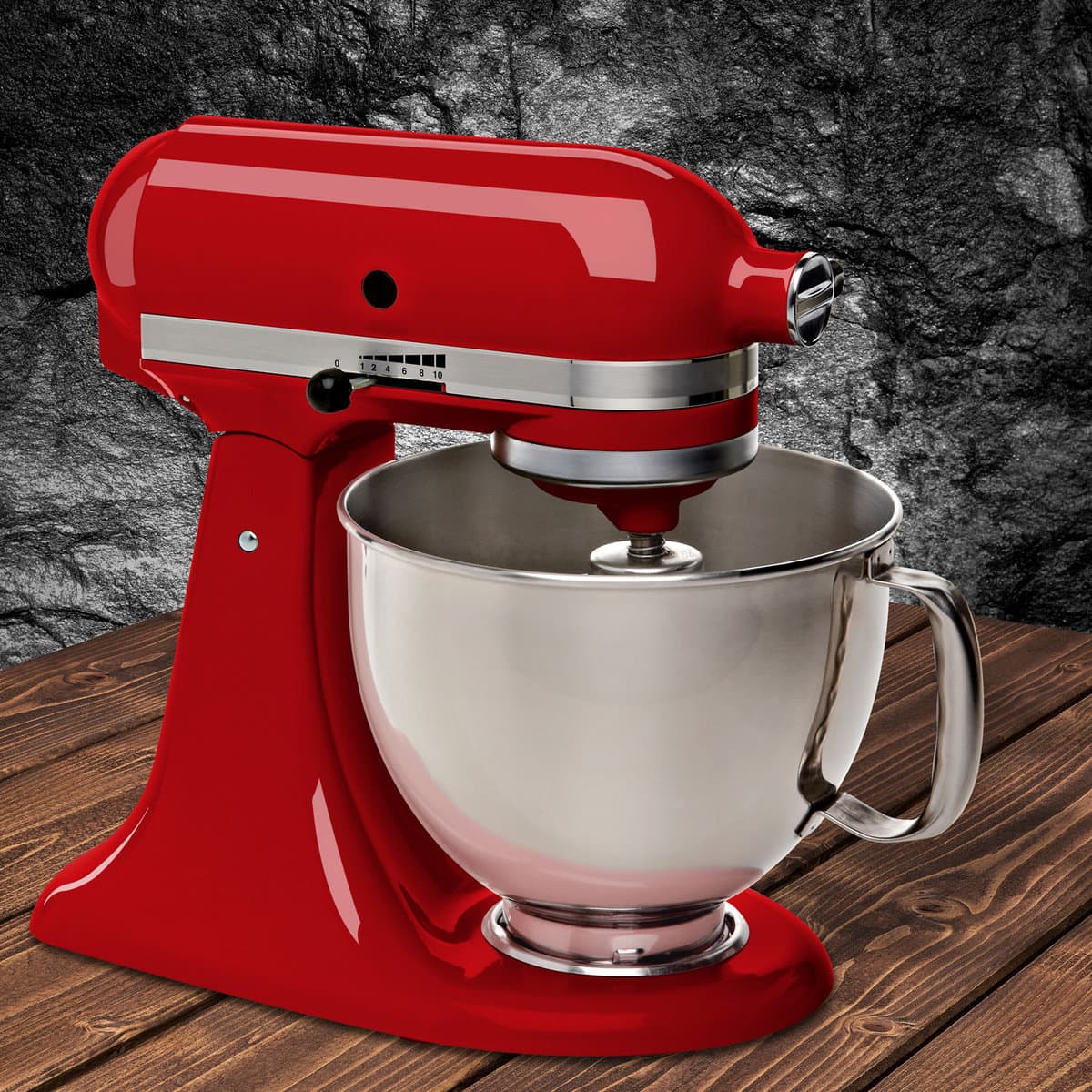
Regular maintenance is crucial to keep your KitchenAid appliances in top condition. Here are some tips to help you maintain them:
- Check the electrical cords and plugs for signs of damage or wear, such as frayed cords or loose plugs.
- Keep your mixer clean and debris-free, which can cause damage and malfunctions.
- Replace worn or damaged parts promptly to avoid further damage.
- Clean your appliances regularly with a mild detergent and warm water.
- Avoid harsh chemicals or abrasive cleaners, which can damage the finish and internal components.
- Keep your appliances in a cool, dry place to prevent moisture and humidity from causing damage.
Normal Sounds From KitchenAid Mixers
Apart from the clicking noise, there are other sounds when operating your KitchenAid Mixer that may be completely normal.
Airplane-Like Sound
If you hear an airplane-like sound, don't worry. This sound is perfectly normal and is caused by the mixer's powerful motor.
Larger mixers can be louder than smaller-capacity mixers due to larger motor and gears.
Whirring Sound
Another familiar sound is the gentle whirring, which typically indicates the mixer's motor is actively spinning.
Related article: Should My Kitchenaid Mixer Be This Loud?
Unusual Sounds From KitchenAid Mixers To Watch Out For
Knowing what to listen for can help you diagnose the problem and take the necessary steps to fix it.
Here are some unusual sounds to watch out for.
Grinding Or Whirring Noise At Low Speeds
One sound to be attentive to is a grinding or whirring noise that occurs when your KitchenAid mixer operates at low speeds.
This particular noise may arise due to worn-out gears or a loose attachment.
If you hear this noise, it's essential to inspect both the gears and attachments for any indications of wear and secure them if required.
Loud Bang Or Clank
A sudden loud bang or clank is a clear indication that something has broken or come loose inside the mixer.
Turn off the mixer immediately and inspect it thoroughly to identify the source of the noise. Do not use the mixer until the issue is resolved.
Loud Rattling Or Vibrations
If your KitchenAid mixer suddenly starts rattling loudly or vibrating excessively, it may be due to loose parts or components.
Check for loose screws or bolts and tighten them as needed.
If the problem persists, it could indicate a more serious issue that requires professional attention.
How To Reduce The Noise On My KitchenAid Mixer?
Here are several things you can do to reduce the noise and get your mixer back to its quiet state.
1. Check For Leveling Issues
First, check if the mixer is level. If it's not, it may cause the beater to hit the bowl, resulting in a clicking noise.
Adjust the feet of the mixer until it's level on the countertop.
Also read: Kitchenaid Mixer Head Wobbles And Bounces – What’s Wrong?
2. Adjust Beater Height
Another common cause of noise is the beater hitting the sides of the bowl.
To fix this, adjust the beater height. Make sure it's not too low or too high but just right to avoid hitting the sides of the bowl.
3. Reduce Mixer Speed
If the noise persists, try reducing the speed of the mixer. Higher speeds can cause more noise, especially if the mixer is not properly lubricated.
You can also try using a different attachment or beater to see if that reduces the noise.
When To Seek Professional Help
Here are some signs that you should call a repair technician:
- You've exhausted all the troubleshooting steps suggested in this post, by KitchenAid or other reliable sources.
- The clicking noise is getting louder or more frequent.
- You notice other unusual sounds or malfunctions in your appliance.
- You are not comfortable or experienced enough to diagnose or repair the issue yourself.
When you call a professional, make sure to provide them with as much information as possible about the clicking noise.
Tell them when it started, how often it occurs, and any other symptoms you've noticed.
Doing so will help them diagnose the issue more quickly and accurately.
You might also like: How Often To Change Grease In Your KitchenAid Mixer
In Closing
A clicking sound from your KitchenAid appliance might worry you, but often, it's nothing major.
Simple troubleshooting steps can usually do the trick.
Just remember that if you're unsure about what's causing the clicking noise, it's always best to consult with a professional.
They'll pinpoint and fix the problem, ensuring your KitchenAid appliance runs smoothly and safely.

